Boost your immune system with these natural remedies to fight pesky colds and flus.
It’s that time of year again: the time of sniffling, coughing, nausea, and doctor visits. Luckily, nature has provided us with ample natural antivirals that fight colds and the flu – many of which you may already have in your kitchen.
Before we check these natural remedies out, here’s a refresher on cold and flu symptoms, so you can catch any signs early and avoid getting sick in the first place.
Do you struggle with bloating, gas, constipation, or other digestive issues? We’ve created a FREE guide to healing your gut naturally.
Click here to get your FREE copy of our Eat Wild Guide!
Common Symptoms of Colds and the Flu

Unsure if you’re coming down with a cold or the flu, or are just overly exhausted? Check out the symptoms below to see if any fit, so you can get a jumpstart on boosting your immune system.
- Tickle in the throat plus a cough
- Diarrhea
- Headache
- Runny nose
- Muscle aches
- Fatigue
- Nausea
- Fever
If you’re experiencing any of these symptoms, it’s best to get started right away on natural remedies that can kick it to the curb. The list below contains some of nature’s most powerful antivirals, antibacterials, and immune boosters to quickly prevent and/or knock out that virus.
11 Natural Remedies To Fight Colds and The Flu
1. Echinacea
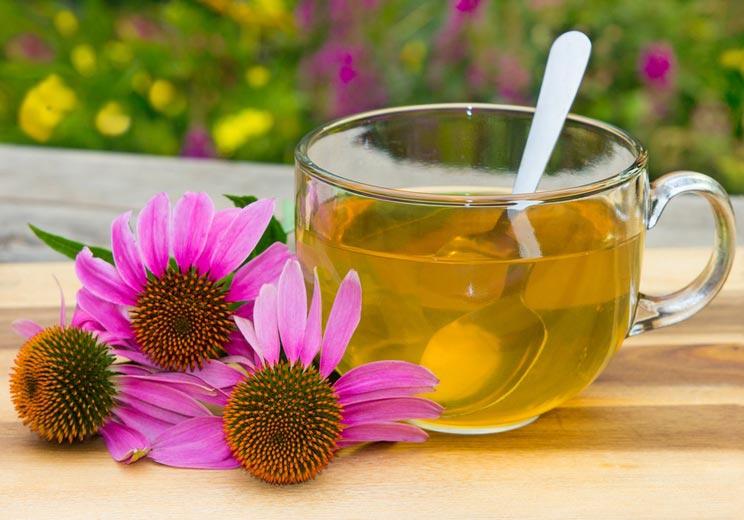
Echinacea is a herb used for hundreds of years to treat cold symptoms and the flu. It contains powerful immune system boosters that increase the white blood cell count to fight infections. This powerful herb has also been shown to cut your chance of catching a cold by 58 percent and can reduce the length of the common cold by as much as one and a half days (1).
Echinacea can be purchased in pill form or as a tea. Most experts suggest taking the recommended dosage three times a day for the duration of your symptoms, but for no longer than 7 to 10 days.
2. Vitamin C
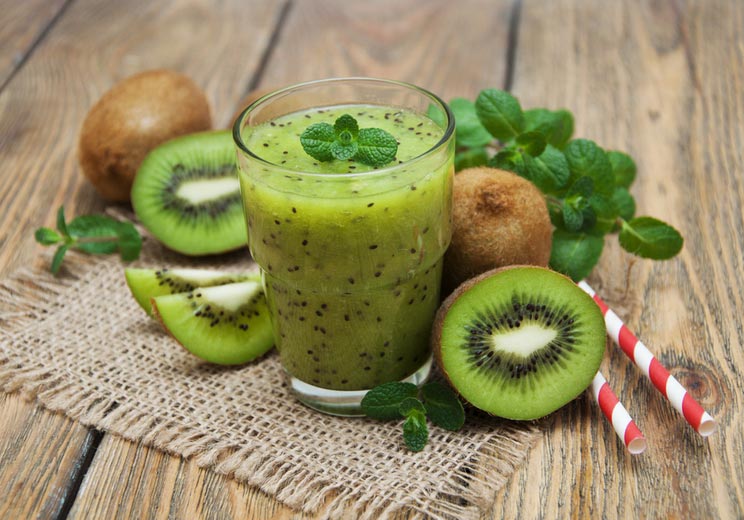
Vitamin C is another powerful immune booster that fights the common cold and flu. Research shows that immune system cells accumulate vitamin C in order to prepare themselves to fight infections and viruses. Without vitamin C, these cells are less effective against fighting pathogens, which equals a higher chance of you getting sick (2).
Most experts recommend a 1,000 to 1,500 mg of ascorbic acid three times a day when you feel a cold coming on. You can also supplement your diet with extra vitamin C rich fruits and veggies, like kiwi, oranges, and leafy greens.
3. Elderberry
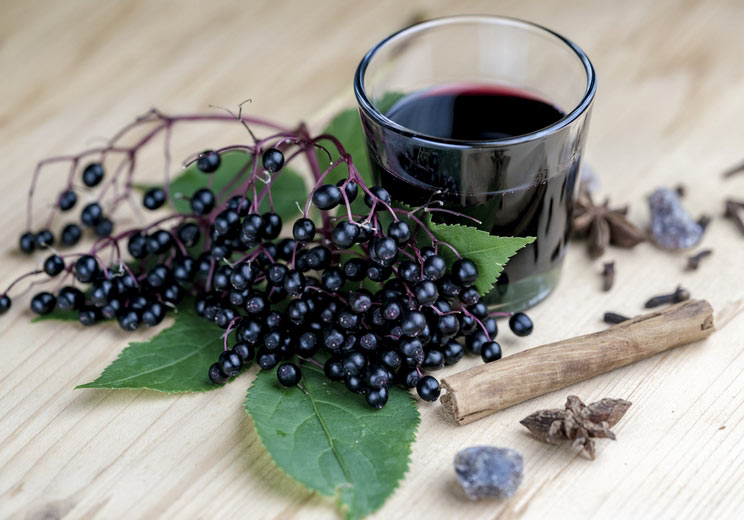
Elderberries can also shorten the duration of your cold and/or flu. These berries are so potent that studies have found them to be effective against 10 strains of the influenza virus while also having the ability to reduce the duration of flu symptoms to just 3 to 4 days (3).
There are many ways to take elderberry, with the most common being syrups or lozenges. You can typically find these in your local health food store. For a double whammy against the flu, look for a blend with zinc and/or echinacea added.
4. Zinc
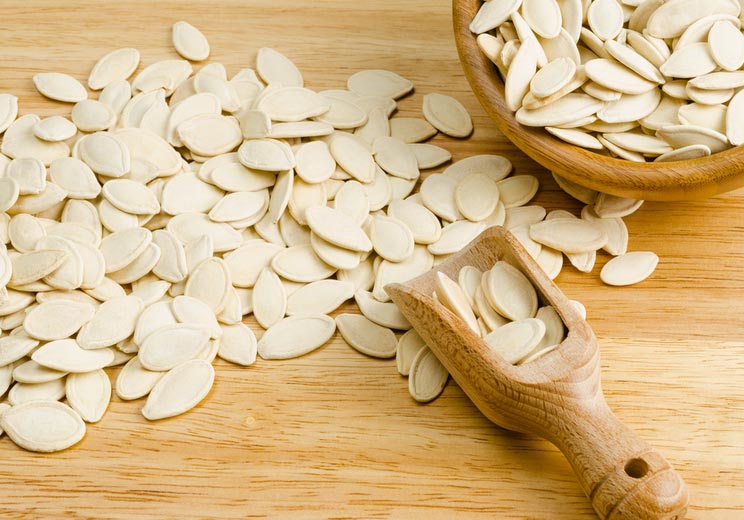
Zinc is one of the most effective nutrients to protecting yourself from pathogens. Studies show that even a mild zinc deficiency can depress your immune function, allowing cold and flu bugs to walk right in the front door (4).
In order to prevent colds and the flu, make sure you’re eating enough zinc-rich foods. Pumpkin seeds, wild-caught fish, and oysters are excellent sources. In addition, you can supplement with zinc when you feel a cold coming on in order to get your immune system up and running again.
5. Probiotics
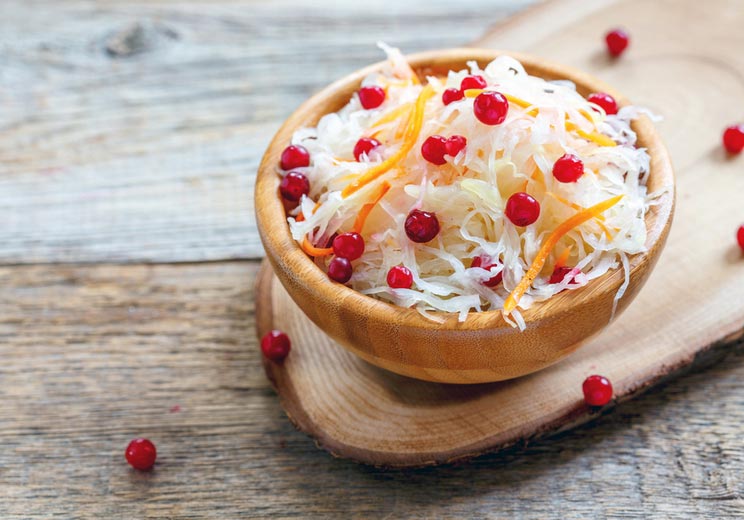
There’s nothing like stocking up on good bugs to fight the bad bugs. One study showed that individuals who supplemented with probiotics daily experienced colds that were 2 days shorter and 34 percent less severe than those who didn’t. The same study also found that college students who took probiotics reported a higher quality of life and missed less school days due to being sick (5).
Consider regularly taking a high-quality probiotic supplement with no less than 2 million CFUs. In addition, try getting in probiotic-rich foods like sauerkraut, kimchi, and coconut yogurt.
6. Vitamin D
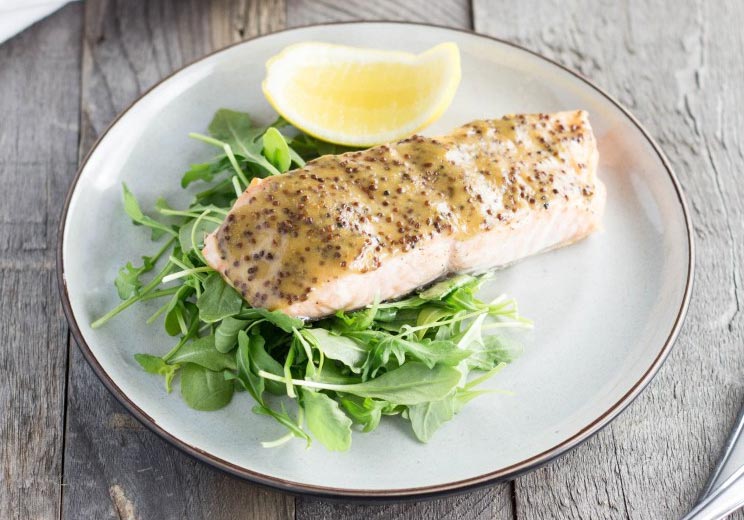
Sunshine does more than make you smile: it delivers a huge boost to your immune system. Specifically, the vitamin D produced by your skin during exposure to sunlight has been shown to reduce susceptibility to infections, while also encouraging your immune cells to function more efficiently (6).
The best way to get a large dose of vitamin D is to spend time outside in direct sunlight for at least 15 minutes a day. Keep in mind that you can wear a hat to cover your face if you’re worried about sun damage on the delicate skin in that area. Otherwise, if you live in a northern climate, make sure you’re taking a vitamin D supplement, while also eat plenty of fatty fish like salmon and sardines.
7. Garlic
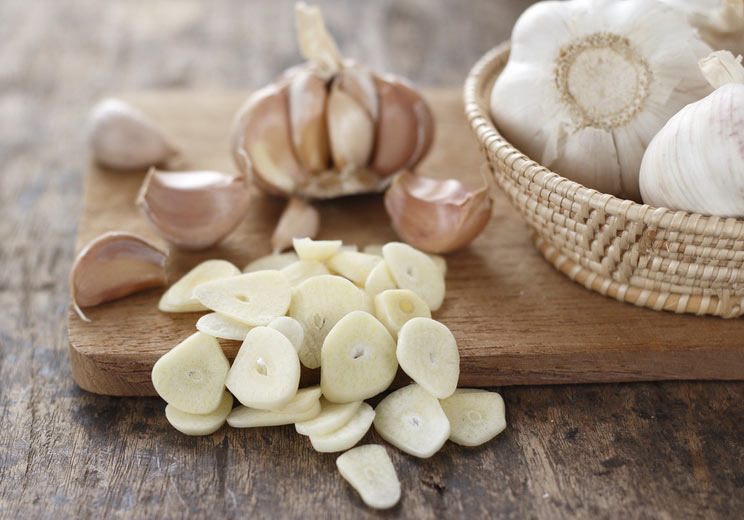
Garlic contains strong antibacterial and antiviral properties, which is why it’s garnered the nickname “nature’s antibiotic.” Studies have shown the main component in garlic, allicin, inhibits a large range of bacteria, while also being effective in eliminating fungal and parasitic infections (7).
Be sure to eat plenty of raw garlic if you find yourself coming down with a cold or the flu. If you can’t stomach garlic, check out your local health food store and ask for a supplement version.
8. Raw Honey
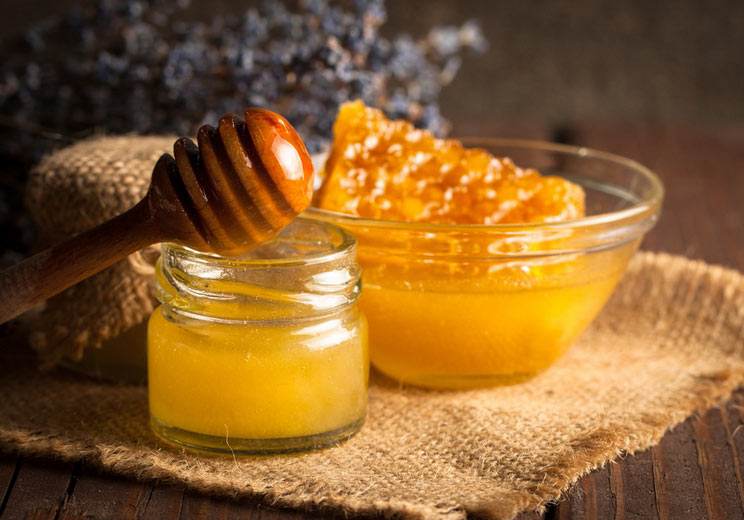
Raw honey has been used for thousands of years as a natural antimicrobial. Modern research shows it is effective at killing even the most potent, antibiotic-resistant bacterial strains while also boosting the immune system (8).
When you feel a cold coming on, try taking a tablespoon or two of raw honey in the morning and evening. PS: When it comes to honey, quality matters. So, make sure you know how to find the best raw honey so you don’t miss out on its natural benefits. We also recommend high-quality brands like Beekeeper’s Naturals that makes 100% raw honey — that way, you can get all the natural vitamins, minerals, and enzymes.
9. Hot Water with Lemon
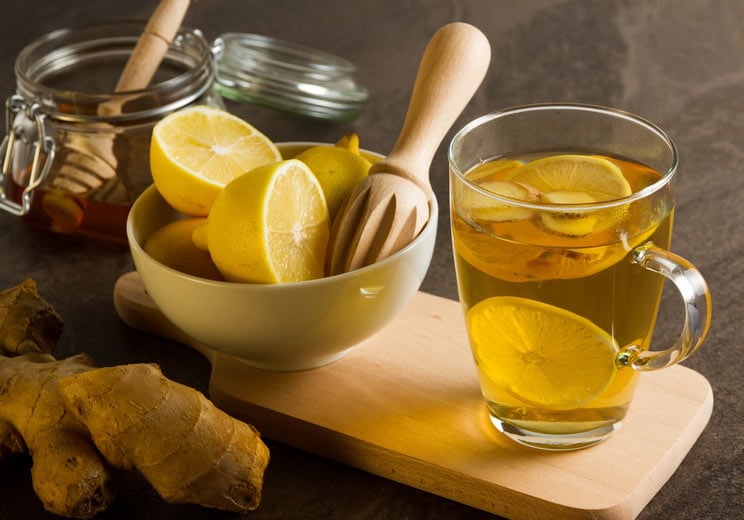
When it comes to getting rid of that stuffy nose that often comes with the cold or flu, try sipping on a mug of hot water with lemon. Studies show that hot drinks increase mucus flow (yes, it’s icky, but at least it’s draining out), while lemon provides a dose of immune-boosting vitamin C (9, 10).
10. Oregano Oil
Stock up on oregano essential oil if you’re battling the flu. Researchers found that its active component, carvacrol, contains natural antiviral properties. Specifically, oregano essential oil is able to inactivate a type of human norovirus within 1 hour of exposure (11).
The best way to take oregano oil is either in capsules (500 mg per day during your cold/flu), or as a steam inhalation to break up mucus. Simply add a drop to a pot of heated, steaming water and inhale, draping a towel over your head.
11. Licorice Root
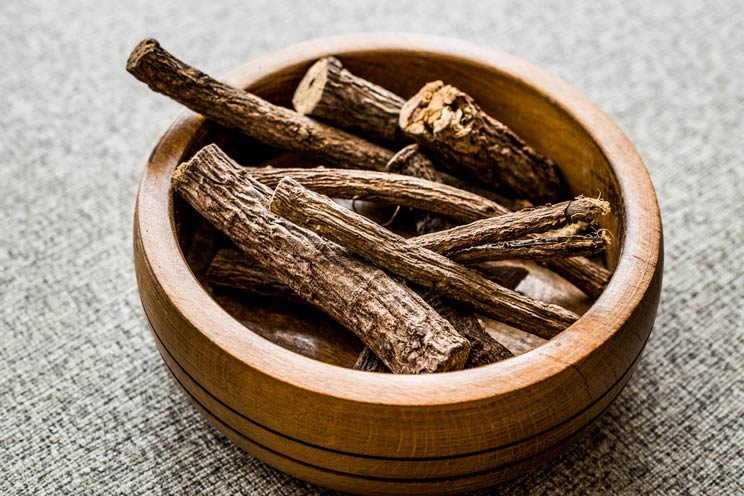
Licorice root has been cherished for thousands of years in Traditional Chinese Medicine for its antiviral, antimicrobial, anti-inflammatory, and anti-tumor properties. Studies show that two components of licorice called triterpenoids are responsible for its antiviral activity. These compounds help inhibit viruses at their DNA level while also preventing viral attachment to healthy cells (12).
You can purchase licorice root in capsule or tea form. If you consume licorice root extract in a capsule, consume no more than 6 grams a day for no longer than 4 weeks at a time.
As you can see, nature is more than willing to help combat colds and the flu. The earlier you catch your symptoms and get started with these natural remedies, the quicker you’ll be spared from dealing with annual cold symptoms.
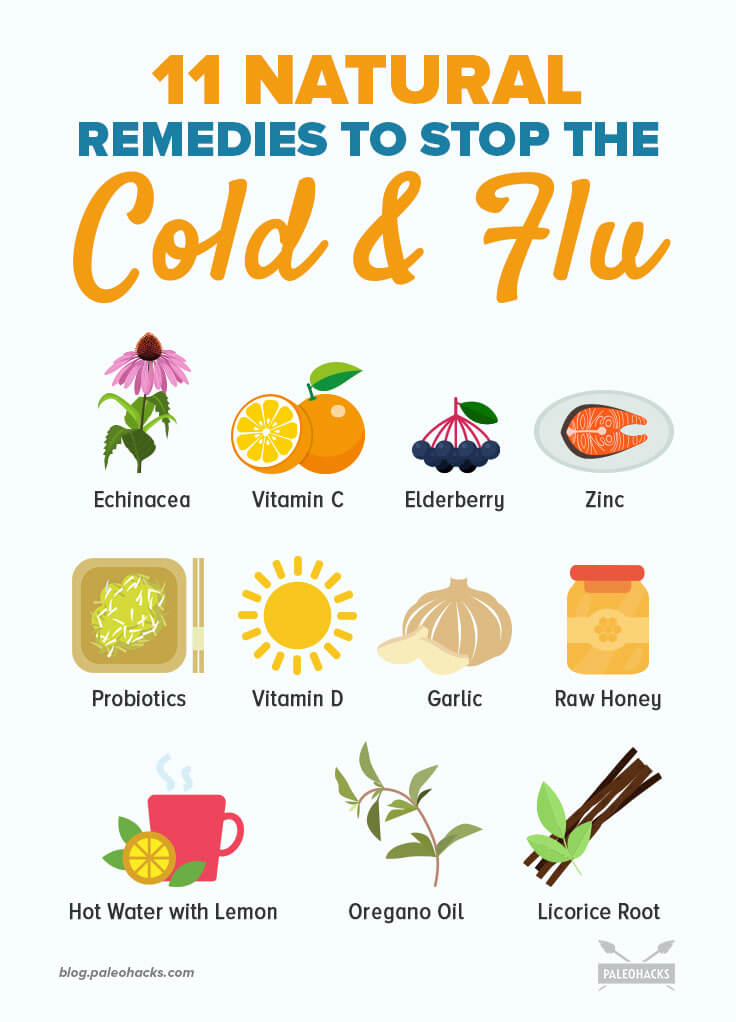
(Read This Next: 5 Ways to Heal Your Gut After Taking Antibiotics)


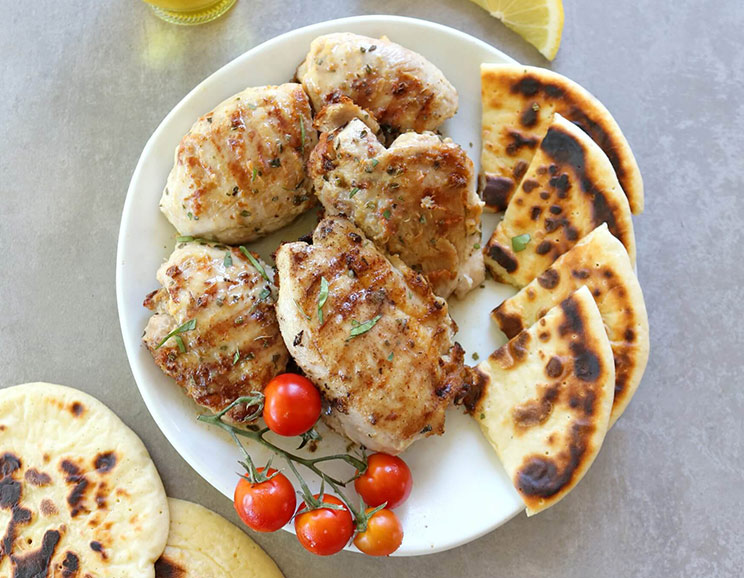 33 Freezable Low Carb, Keto Recipes
33 Freezable Low Carb, Keto Recipes


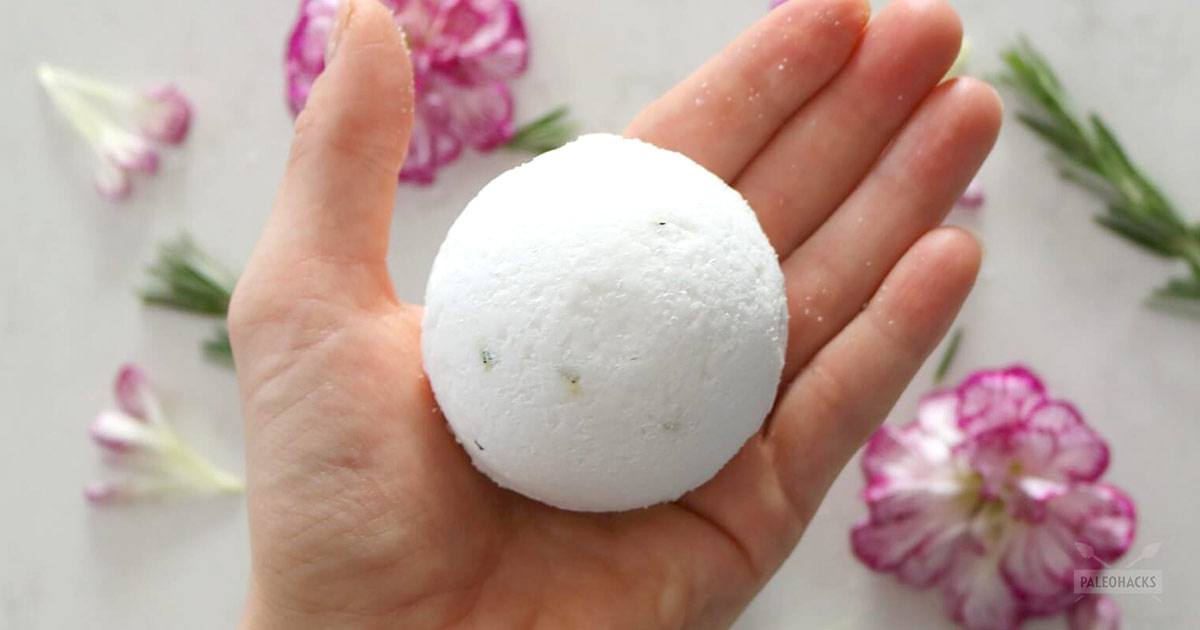




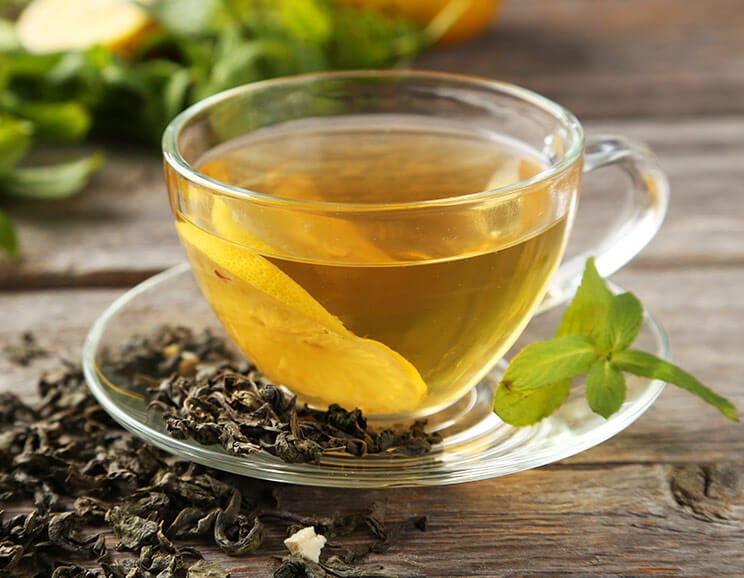
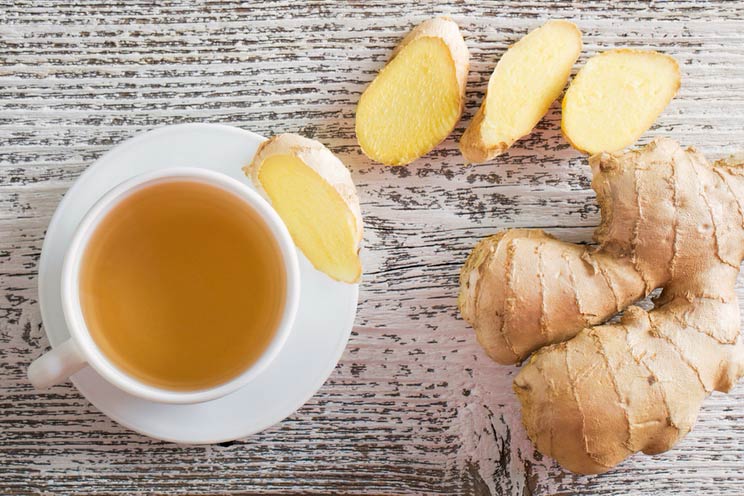
Show Comments